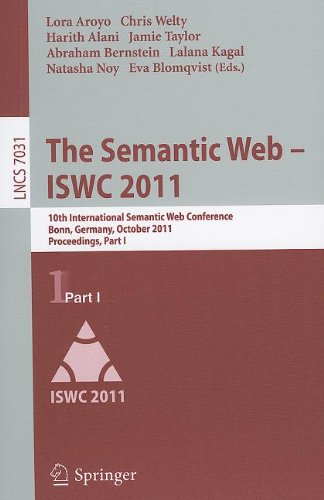

Most ebook files are in PDF format, so you can easily read them using various software such as Foxit Reader or directly on the Google Chrome browser.
Some ebook files are released by publishers in other formats such as .awz, .mobi, .epub, .fb2, etc. You may need to install specific software to read these formats on mobile/PC, such as Calibre.
Please read the tutorial at this link: https://ebookbell.com/faq
We offer FREE conversion to the popular formats you request; however, this may take some time. Therefore, right after payment, please email us, and we will try to provide the service as quickly as possible.
For some exceptional file formats or broken links (if any), please refrain from opening any disputes. Instead, email us first, and we will try to assist within a maximum of 6 hours.
EbookBell Team

4.3
48 reviewsThe two-volume set LNCS 7031 and LNCS 7032 constitutes the proceedings of the 10th International Semantic Web Conference, ISWC 2011, held in Bonn, Germany, in October 2011.
Part I, LNCS 7031, contains 50 research papers which were carefully reviewed and selected from 264 submissions. The 17 semantic Web in-use track papers contained in part II, LNCS 7032, were selected from 75 submissions. This volume also contains 15 doctoral consortium papers, selected from 31 submissions.
The topics covered are: ontologies and semantics; database, IR, and AI technologies for the semantic Web; management of semantic Web data; reasoning over semantic Web data; search, query, integration, and analysis on the semantic Web; robust and scalable knowledge management and reasoning on the Web; interacting with semantic Web data; ontology modularity, mapping, merging and alignment; languages, tools, and methodologies for representing and managing semantic Web data; ontology, methodology, evaluation, reuse, extraction and evolution; evaluation of semantic Web technologies or data; specific ontologies and ontology pattern for the semantic Web; new formalisms for semantic Web; user interfaces to the semantic Web; cleaning, assurance, and provenance of semantic Web data; services, and processes; social semantic Web, evaluation of semantic Web technology; semantic Web population from the human Web.